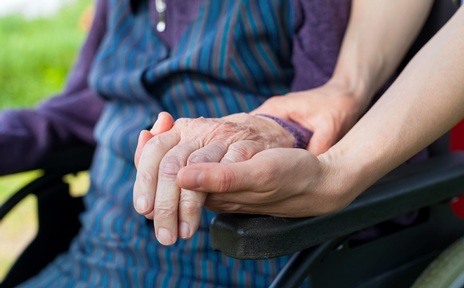MPs vote for amendment to controversial care cap where poorest pensioners will lose most
MPs have voted in favour of an amendment to the social care cap, meaning some of the poorest homeowners in England will have to sell their houses to pay for care, with more protection given to wealthier homeowners,

Boris Johnson narrowly succeeded in getting MPs to back his social care cap for England, but with a reduced majority vote of 272 against 246. Nineteen Conservative MPs voted against the government and a further 28 defied party orders to back the plan and abstained instead including the former health secretary Jeremy Hunt.
MPs rushed back from the Conservatives Winter Ball to vote for the amendment.
The government announced its plans to reform social care back in September saying it would cap costs for personal care at £86,000 from 2023, using a National Insurance hike of 1.25 per cent to fund health and social care over the next three years.
Boris Johnson promised there would be subsidised care costs for people owning between £20,000 and £100,000 in assets and these would be based on a means test.
However the amendment means the £86,000 care cap will only include what the person privately contributes and nothing from the state.
Labour's Liz Kendall, shadow minister for social care, said: "Tory MPs broke the promise they were elected on that nobody would have to sell their home to pay for care.
"Instead they voted to tax ordinary working people, while the wealthiest in our country are unaffected."
The shadow health secretary, Jonathan Ashworth, called the new plan “a care con” rather than a care plan.
Under the new plans, those with assets between £20,000 and £100,000 will qualify for council help, but will have to pay £86,000 out of their assets to reach the cap.
Anyone who has less than £20,000 worth of assets will not need to pay for their care.
Economist Andrew Dilnot told a Treasury Select Committee last Thursday around 60 per cent of older people who end up needing social care have assets less than £186,000 and about 30-40 per cent less than £106,000.
Rachel Clarke, a palliative care doctor, who wrote the book, 'Breathtaking', about working in the NHS during the first wave of Covid-19, said: "The government just forced a social care amendment through the Commons meaning someone who owns a £1 million house will be able to protect over 90 per cent of their asset - yet someone with a home worth £70k will lose almost everything. This is so deeply wrong."
The Independent Care Group chair, Mike Padgham said: “The strength of feeling against the proposals should demonstrate to the government that they haven’t got social care done.
"Just because something is marginally better to what we have now, doesn’t solve the crisis. For many the exclusion of council support from the new £86,000 cap on care costs will actually be worse."
Age UK is hoping the House of Lords will overturn the amendment, with its charity director, Caroline Abrahams saying: "When the Prime Minister announced his intention to activate Sir Andrew Dilnot's cap on catastrophic costs three months ago Age UK said that this reform was definitely worth having, but increasingly the jury's out.
"Since then, the Government has failed to give social care the financial settlement it needed at the Spending Review; announced a National Insurance increase to help social care and then admitted almost all the money is going to the NHS; and made vaccination compulsory for care home staff without any plan to replace the thousands of workers its own analysis says will walk away as a result."
The bill will now go to the House of Lords, where peers will scrutinise the changes.
Latest News
 29-Jul-24
Dementia Bus gives carehome.co.uk staff insight into life with dementia
29-Jul-24
Dementia Bus gives carehome.co.uk staff insight into life with dementia
 01-Mar-24
Find out the top care homes in 2024
01-Mar-24
Find out the top care homes in 2024
 21-Mar-23
UK's top care homes in 2023 revealed
21-Mar-23
UK's top care homes in 2023 revealed
 03-Jan-23
carehome.co.uk launches free care helpline
03-Jan-23
carehome.co.uk launches free care helpline
 13-Dec-22
5 mins with Emily Whitehurst, chief operating officer for Constantia Healthcare
13-Dec-22
5 mins with Emily Whitehurst, chief operating officer for Constantia Healthcare